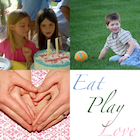 On Monday we celebrate Dr. Martin Luther King’s birthday. He is, for many of us, the quintessential modern day hero. Here is a man who changed the face of our nation. He clearly did not make these changes alone – he stood on the shoulders of many before him, and he was supported by thousands of others who made sacrifices, big and small, to support the values of equality and justice. While some of us were not alive during King’s life, we all know people who were and the stories of the Civil Rights Movement are far more immediate than our ancient stories of liberation.
On Monday we celebrate Dr. Martin Luther King’s birthday. He is, for many of us, the quintessential modern day hero. Here is a man who changed the face of our nation. He clearly did not make these changes alone – he stood on the shoulders of many before him, and he was supported by thousands of others who made sacrifices, big and small, to support the values of equality and justice. While some of us were not alive during King’s life, we all know people who were and the stories of the Civil Rights Movement are far more immediate than our ancient stories of liberation.
In our classrooms we are having incredible conversations with the children as we approach this holiday. When we talk to the children we try to emphasize not only Dr. King’s work, but the power of the many people who helped make change – people like Rosa Parks who boldly would not get up from her seat in the front of the bus, young Ruby Bridges, who entered an all-white public school day after day despite throngs of protestors blocking the doorway, Abraham Joshua Heschel who served as a bridge between the Jewish community and the Civil Rights Movement, and the hundreds of thousands of others who marched, protested, wrote letters and boycotted. We wonder: what made these people rise from their complacency and say, I can do something?
Children are interested in so many aspects of Dr. King and his legacy. They are interested in the notion that there was a time when black and white children were not allowed to play together, drink from the same water fountains, sit in the same sections of the bus, and so much more. Children’s sense of what is “fair” emerges during these early years, and these laws that upheld segregation seem so clearly contradictory to their sense of justice. The children are also often fascinated by the fact that Martin Luther King died (and sometimes they hear from a classmate, he was shot). There have been lively, robust conversations about how we understand differences, acknowledging that while we may indeed all be different, we should still all expect to be treated equally. The children talk about how what we see on the outside is not the same as what is going on in the inside; about how each one of is an individual and yet also so very connected.
As we hold out Martin Luther King as a modern day hero, what can we – adults and children – learn from him? What are those qualities that we can emulate? The first thing that Dr. King did, as his famous speech reminds us, is that he took time to DREAM! As Chief Rabbi Lord Sacks notes, dreaming, though “seemingly the least practical activity turns out to be the most practical, and most often left undone. I know people who spend months planning a holiday but very little time planning a life. Imagine setting out on a journey without deciding where you are going to. However fast you travel, you will never reach your destination because you never decided where you want to be. In fact, the faster you travel, the more lost you will become.” Children are natural dreamers. They are not confined by what is practical, and their line between reality and fantasy is far blurrier than ours. But we have so much to learn from their dreams and by their ability to dream.
There is a well-known story about three men who spent their lives quarrying rocks. When someone asked them what they were doing, one replied, “Breaking rocks.” The second said, “Earning a living.” The third said, “Building a cathedral.” How do we shift our perception so that the small things we are doing in fact do make a difference? How do we begin to see our efforts as being a part of the work of building a cathedral? How do we start to see signing petitions, writing small checks, joining protests, composting in our kitchen, writing letters to our representatives or starting a small group around an issue as meaningful? And how do we also impart this lesson to our children?
Dr. King leaves a grand legacy behind – he made great changes and also was taken from a world that is still so very broken. Discrimination continues, racial inequality persists, and we have so many other important and timely issues – gun control, poverty, the list goes on. Can we take some time to dream with our children? Can we see our acts and gestures as a part of building a cathedral, creating a world for our children of which we can be proud?
Wishing everyone a shabbat and long weekend of dreams – who knows what our world might look like if we all took the time to dream.
- Gratitude - October 31, 2014
- The Tower Of Babel - October 24, 2014
- The World Was Created For My Sake… I Am But Dust And Ashes - October 3, 2014
